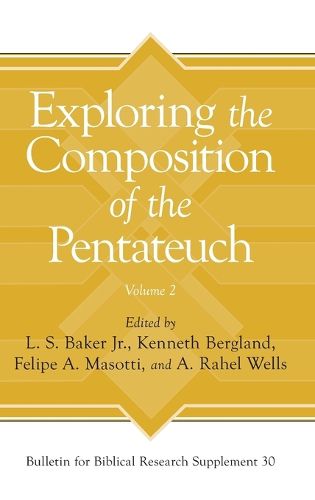Readings Newsletter
Become a Readings Member to make your shopping experience even easier.
Sign in or sign up for free!
You’re not far away from qualifying for FREE standard shipping within Australia
You’ve qualified for FREE standard shipping within Australia
The cart is loading…






While the critique of existing approaches to the composition of the Pentateuch has its place, the editors of this volume argue that there is a need to formulate positive proposals based on verifiable data and logical argumentation. Building on the foundation established in the preceding volume, Exploring the Composition of the Pentateuch, Volume 2 pursues this goal by addressing three essential questions: What are key strategic areas of research that need attention? In what areas can we draw conclusions? And what are the limits of available, relevant evidence?
Part 1 of this volume investigates the readability of the Pentateuch, exploring narrative techniques, inconsistencies, and coherence. Part 2 tackles issues relevant for the dating of Deuteronomy, like the narrative retelling in Deut 1-3, dating based on parallels to the Loyalty Oath of Esarhaddon, and deuteronomistic tribal language. And part 3 focuses on issues related to the overall dating of the Pentateuch, discussing empirical models, comparisons with the Hazor Legal Fragments, turning points in pentateuchal scholarship, the direction of dependence between the legal material of the Pentateuch, and the absence of Zion theology in the Pentateuch.
In addition to the editors, the contributors include Richard E. Averbeck, John S. Bergsma, Joshua Berman, Daniel I. Block, Mark Steven Francois, Roy E. Gane, Richard S. Hess, Benjamin Kilchoer, Noel K. Weeks.
$9.00 standard shipping within Australia
FREE standard shipping within Australia for orders over $100.00
Express & International shipping calculated at checkout
Stock availability can be subject to change without notice. We recommend calling the shop or contacting our online team to check availability of low stock items. Please see our Shopping Online page for more details.
While the critique of existing approaches to the composition of the Pentateuch has its place, the editors of this volume argue that there is a need to formulate positive proposals based on verifiable data and logical argumentation. Building on the foundation established in the preceding volume, Exploring the Composition of the Pentateuch, Volume 2 pursues this goal by addressing three essential questions: What are key strategic areas of research that need attention? In what areas can we draw conclusions? And what are the limits of available, relevant evidence?
Part 1 of this volume investigates the readability of the Pentateuch, exploring narrative techniques, inconsistencies, and coherence. Part 2 tackles issues relevant for the dating of Deuteronomy, like the narrative retelling in Deut 1-3, dating based on parallels to the Loyalty Oath of Esarhaddon, and deuteronomistic tribal language. And part 3 focuses on issues related to the overall dating of the Pentateuch, discussing empirical models, comparisons with the Hazor Legal Fragments, turning points in pentateuchal scholarship, the direction of dependence between the legal material of the Pentateuch, and the absence of Zion theology in the Pentateuch.
In addition to the editors, the contributors include Richard E. Averbeck, John S. Bergsma, Joshua Berman, Daniel I. Block, Mark Steven Francois, Roy E. Gane, Richard S. Hess, Benjamin Kilchoer, Noel K. Weeks.